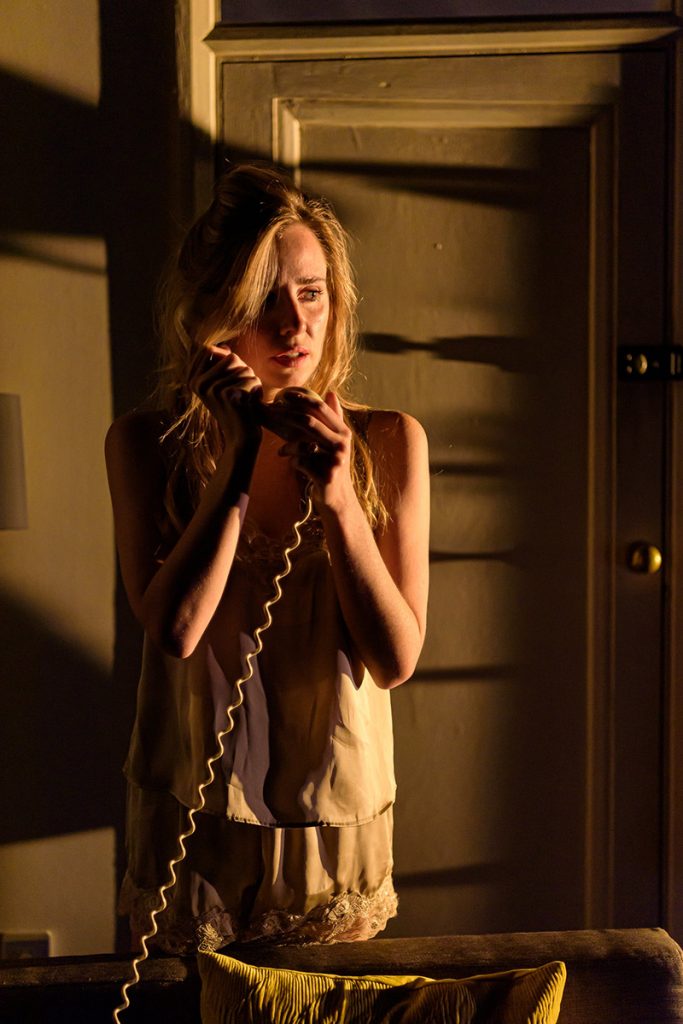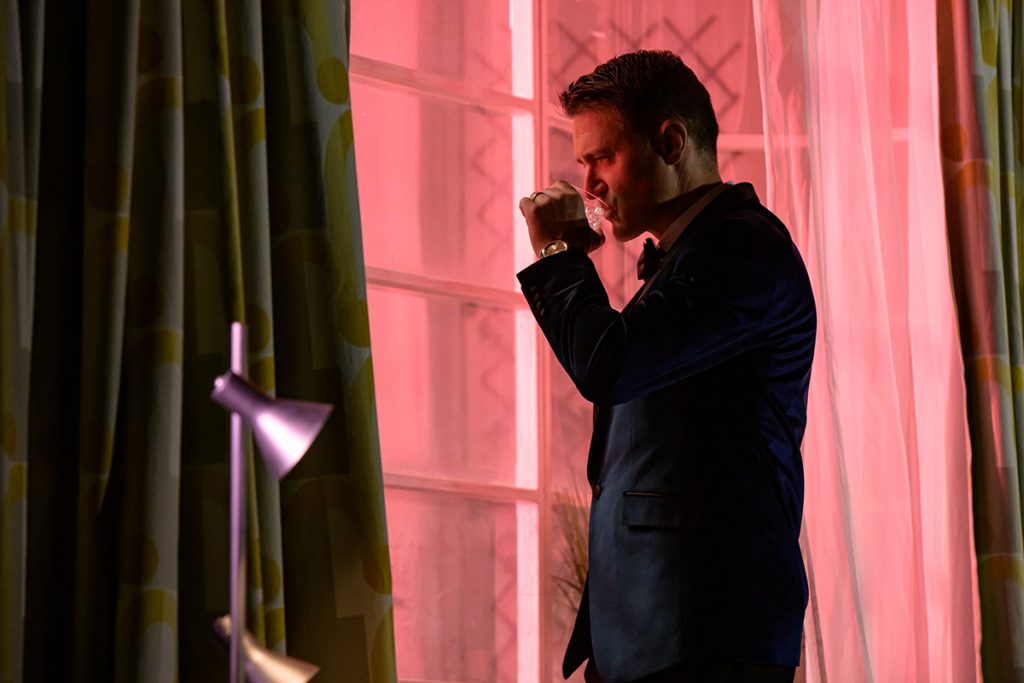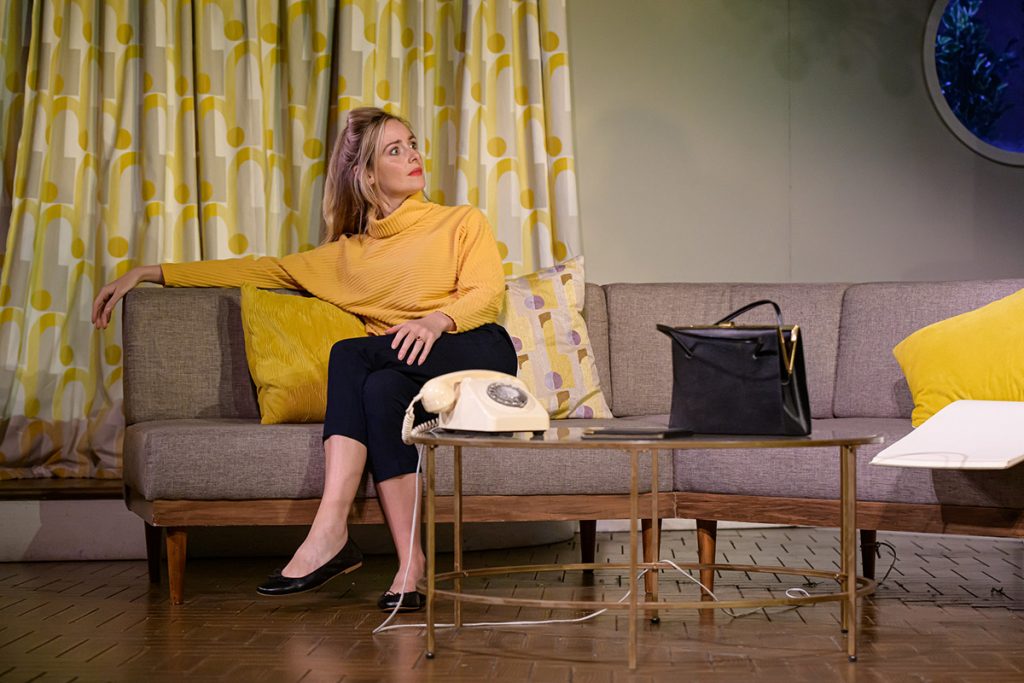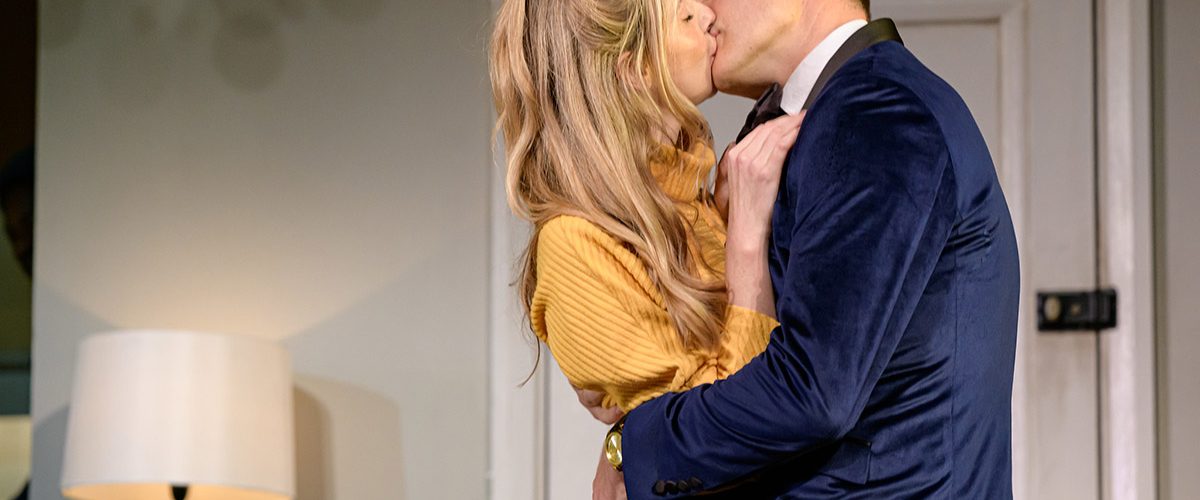In the early 1980s, Liverpool Playhouse staged what was billed as a ‘Marxist interpretation’ of Macbeth. Patrons soon discovered that, for this production, ‘Marx’ signified Groucho, Harpo and Chico. Purists were aghast. We students thought it was great.

Now, director Anthony Banks brings us Fawlty Towers’s take on Frederick Knott’s thriller, Dial M for Murder. Sadly, this one’s not great.
By the time Knott’s ‘Will he get away with it?’ script was adapted (by the original author) for Alfred Hitchcock’s 1954 film (starring Ray Milland, Grace Kelly and Robert Cummings) it had already been a success on stage and on BBC TV. It’s a decent piece, but one that needs at least one performer to shine (in Hitchcock’s version that was arguably John Williams as Chief Inspector Hubbard).

Notwithstanding Knott’s own assertion that the success of the piece was down to it being ‘a serious play’ portraying a murderer from his own perspective (hence, for some critics foreshadowing recent cults such as Killing Eve), Banks and his company have chosen to camp it up and play it for laughs. To be fair, there are a few, though the audience has to work to find them.
The story: retired tennis star, Tom Wendice has discovered that his wife, Margot (note: he married her for her money) has a lover – a writer of crime dramas for TV, called Max Halliday. Halliday has just returned from a year working in New York. As the curtain rises, it’s clear that Margot and Max have taken up where they left off. Unbeknown to them, Tom has discovered his wife’s infidelity and has patiently and meticulously plotted a dastardly revenge. Put simply, the revenge involves Tom persuading someone he knew from school – an impecunious scoundrel, currently known as Captain Lesgate – into throttling poor Margot, while her lover unwittingly provides her husband with a cast iron alibi.
It’s the perfect crime which, as we all know, means things start to go wrong. These problems inspire ingenious on-the-hoof thinking from Tom, whilst simultaneously triggering this particular Tom (Tom Chambers) to switch into Hyper-Cleese mode. Don’t mention the war (Fawlty Towers, season 1, episode 6).
Plodding Northern Plod, Inspector Hubbard (Christopher Harper) seems taken in by all this and before you know it, Margot (spoiler: the perfect murder doesn’t quite happen) is on death row. If only her desperate lover can convince her not exactly grieving husband to play along with a brilliant plot he’s just thought up – all about a wicked husband plotting to have his wife murdered so he can get his hands on her money…

All along the way, strange choices are made. Michael Salami (as Max Halliday) and Diana Vickers (Margot Wendice) could be a hot couple, had they not been directed down the Carry On Adultering route. On being introduced to Max, Christopher Harper’s Hubbard pointedly declines a handshake, making him look like a racist (without need or payoff). The high drama of Lesgate’s attack on Margot is played with such pantomime choreography (what did fight director Alison de Burgh have in mind?), we are never sure whether Margot is attempting to semaphore for help or park up an airliner at Heathrow.
As both props and people but spoke in the perfect wheel of his plan, we anticipate Wendice grabbing the branch of a nearby shrub to thrash something or somebody (Fawlty Towers, season 1, episode 5).
Spoiler alert: the cunning Wendice will be thwarted by the unexpectedly brilliant Hubbard (forefather of Joe Columbo), at which point all that is lacking is for the exasperated villain to throw his hands around his head, drop to his haunches and begin to frog-hop around the floor (Fawlty Towers, season 2, episode 2).
There is a double curtain call and some people actually cheer. See what Lockdown has made of us?
Dial M for Murder is at The Lowry, Salford Quays from 15 to 20 November 2021.





